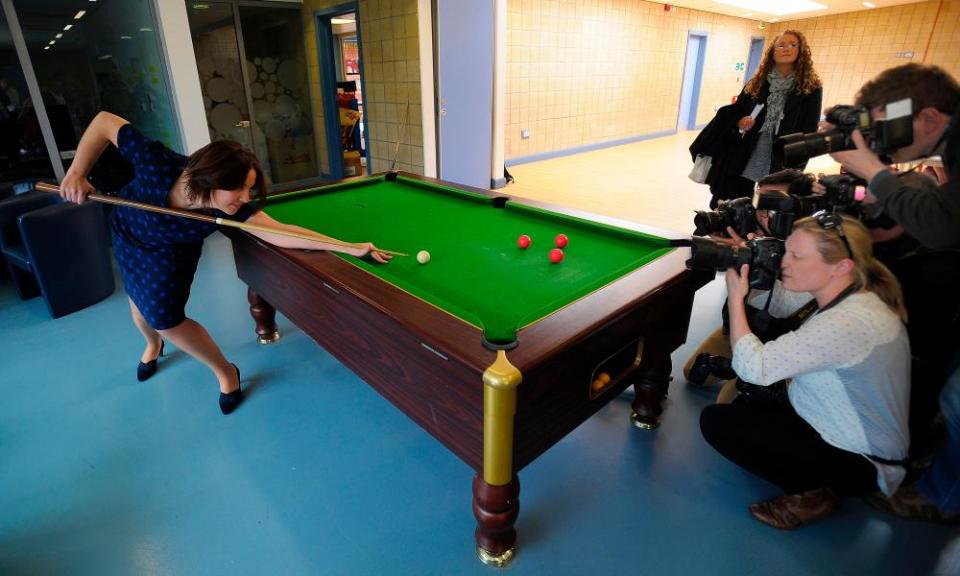Labour’s aimless stroll towards oblivion in Glasgow | Kevin McKenna

No other city in the UK has embodied the success and aspirations of the Labour movement more than Glasgow. And now, as Labour faces up to the reality of spending a generation in the political wilderness, no city has come to epitomise the party’s decline more than this one. At Westminster, Jeremy Corbyn is facing a reckoning; in Glasgow, the party he leads is contemplating an apocalypse.
Labour’s writ in Scotland’s most important city has run virtually uninterrupted since 1933; its power flows from an industrial hinterland that once provided the most productive labour force in the British empire. The influx of Irish men and women fleeing famine and oppression in their own land further reinforced Labour’s grip. Labour and the trade unions gave this community a hope of prosperity that British colonialism had denied them in the land of their birth.
The sheer pace of deindustrialisation in the postwar decades demoralised those communities to whom the old heavy trades had given pride and dignity. For the first time in the history of these islands, working families, for a few decades, had been paid wages sufficient to permit them to plan for the future. Then the darkness descended once more. Labour administrations had been dilatory in reacting to the harrowing of its industrial communities and this, combined with Margaret Thatcher’s vengeful assaults on Britain’s working class, extinguished what few remnants of hope and self-respect that existed in these neighbourhoods. This wasn’t so much a social cleansing as a slow and deliberate crushing of a collective spirit.
Yet Labour still thrived in Glasgow, a city that bore the brunt of the party’s laziness and Thatcher’s venom. There were two significant reasons for this. There was no proper alternative to a Conservative party that had come to value little other than profit, no matter how many thriving communities this wrecked in the process. And, despite the economic privations of those decades, a large and well-educated middle class had begun to emerge, even as the communities whence they had sprung were being broken by Thatcherism.
Trade unionism and Labour’s post-war reforms had unlocked doors in education and the professions that had previously been closed to their parents. They remained loyal to the party that had given them the keys of the kingdom and, as they began to deploy their new-found economic and political muscle, the hegemony of Labour continued.
Labour is facing a catastrophic defeat in Glasgow by the SNP – deserted by its most loyal supporters
Yet nowhere was this residual loyalty to the party more deeply rooted than among the third and fourth generations of Irish immigrants. In these communities, whose sons and daughters were now prominent in the law, media and local politics, it was considered anathema not to vote for Labour, the party whose vision had delivered them from discrimination and racism. It was a potent mixture, this fusion of hope and redemption, but next Thursday, the day of the local council elections, its strength will finally be shown to have evaporated.
Labour is facing a catastrophic defeat in Glasgow by the SNP, deserted by its most loyal supporters and betrayed by a Scottish leadership that would struggle to find Sauchiehall Street on a satnav.
Labour’s council leadership will reflect ruefully that they performed as well as any administration possibly could have in the face of the economic challenges facing them. The Westminster government’s one-sided austerity programme was always destined to be felt in this city more than anywhere else in Scotland.
The patterns of inequality that stretch cross Scotland’s working-class communities are most prominent in Glasgow. Here is where the predations of the Department for Work and Pensions are most apparent, and here is where cuts in public services are most keenly felt. Indeed, it is a perverse irony of the constitutional upheaval that continues to dominate Scottish politics that the SNP, whose Holyrood leadership has done little to ease Glasgow’s situation, is set to rule in its city chambers.
Nicola Sturgeon can rail against the unfairness of Theresa May’s public sector reforms and capping of the universal credit system, but her government remorselessly cut Glasgow’s budget every year since her party came to power. Glasgow’s Labour chiefs would also do well to ponder the consequences of the recent disastrous political strategy of its national leadership at Holyrood. Instead of choosing to oppose the Tories and to highlight the human cost of austerity, they opted instead to roll out the union jack and portray themselves as champions of the union.
Thus, though facing easy targets presented by May, Labour’s chiefs rejected them and chose instead to fight on territory more amenable to the Tories.
Admittedly, Labour was faced with a spiritual dilemma: does it fight to retain the support of its traditional supporters who were being spooked by the Tory hard right’s Ukip rhetoric or does it highlight the pain that May’s policies have caused in their own heartlands? In choosing to clothe themselves in red, white and blue they took the wrong option. The party’s core support, who hadn’t been wooed by the Scottish Tories’ return to the tribal politics of the 1950s, now felt betrayed by seeing their party conducting itself like a lighter and more pathetic version of the Tories.
Labour's supporters felt betrayed by seeing their party conducting itself like a pathetic version of the Tories
Before the dawn of this year’s longest day, Labour in Scotland is destined to lose Glasgow and perhaps be left without a single seat at Westminster. It will be the conclusion of 10 years of rank bad leadership, complacency and a complete failure to understand the shifts, still occurring in Scottish politics, which have moved the old fault-lines.
Such an outcome at local and national level is the equivalent to finding your team 3-0 down to Barcelona: there is simply no way back. There will continue to be a party of sorts, but it will be a spectral thing; condemned to wander around the edges of Scotland’s political landscape like the old UK Liberals, seeking refuge where it can in the occasional byelection success.
The people of Scotland will also pay a heavy price for Labour’s hubris and foolishness. They will be left to choose between a rightwing party with significant Ukip tendencies and a party that likes to pretend it is left wing.
Ironically, Labour’s only hope for a revival in Scotland will be independence. Yet it has neither the courage or the vision to see that.


 Yahoo News
Yahoo News 
